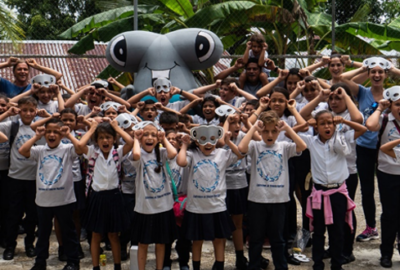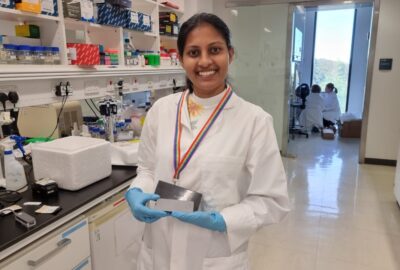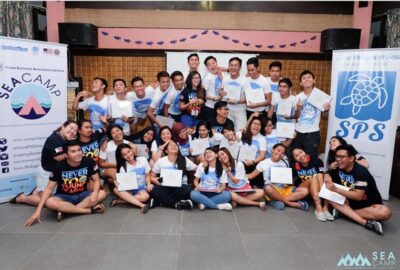The Ripple Effect: Part 2
By New England Aquarium on Monday, June 27, 2022


In Part two of our blog series, we hear from more of the New England Aquarium’s Marine Conservation Action Fund (MCAF) Program’s collaborative project partners. The project titled, “The Ripple Effect – Capacity Development for the Ocean” is endorsed by the UN Ocean Decade and is focused on collectively scaling up the support of local leaders in their efforts to develop conservation capacity in stakeholders such as fishers, youth, community members, and new emerging leaders in ocean conservation.
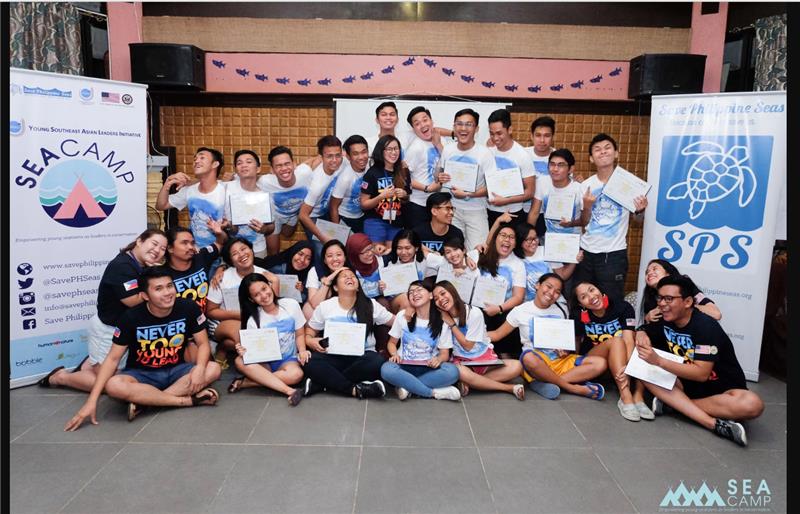
Save Philippine Seas
Save Philippine Seas (SPS) is a nonprofit based in the Philippines, founded by MCAF Fellow and SPS Executive Director and Chief Mermaid Anna Oposa. Save Philippine Seas aims to narrow the gap between scientists and the general public, the old and young, and the passionate and indifferent by mobilizing “seatizen”-led initiatives that are empowering Filipinos towards collective action and behavior change. To achieve a ripple effect in the ocean, Save Philippine Seas has been organizing and implementing environmental education and conservation leadership programs, the majority of which are catering to youth below 24-years-old. In all their programs, there is a mix of sessions that increase knowledge on environmental issues and marine conservation and those that build/develop practical skills like public speaking, branding, and visual identity, as well as monitoring and evaluation methods. Their Young Southeast Asian Leaders Initiative Marine Accelerator Program is also supporting 21 youth-led projects in Southeast Asia through small grants; the recently concluded climate education and action program called Change the Current trained 110 learners and 110 educators on climate education and supported 19 adolescent-led projects across the Philippines; and Haquathon 2.0 supported five tech-based solutions in the Philippines, Indonesia, and Malaysia through small grants.
Anna Oposa says “There is a lot of work we need to do to address conservation issues. Capacity development is crucial not just in enhancing skills and finding untapped potential, but also in building confidence to pursue the kind of future we want by 2030.”
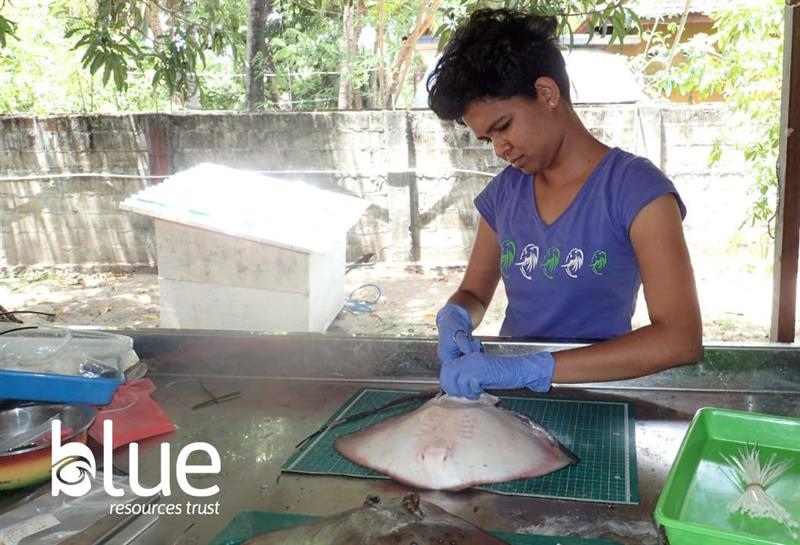
Blue Resources Trust
Blue Resources Trust was co-founded by MCAF Fellow Daniel Fernando and is a non-profit that aims to promote informed science-based decision to facilitate the conservation and sustainable use of marine resources, and to provide a platform for scientists to expand research in the Indian Ocean. Blue Resources Trust is creating a ripple effect in the ocean by providing scholarships for Sri Lankan students carrying out their undergraduate or graduate studies in elasmobranch fisheries. This covers a wide range of topics from fishery landing site surveys to age growth studies to stock assessments. Such research helps fill gaps in national knowledge that in turn contribute towards improved management of threatened shark and ray species. Traditionally, marine science research opportunities within Sri Lanka have largely been restricted to oceanography or aquaculture but Blue Resources Trust is able to provide exposure to other pathways in the field of marine biology. This helps emphasize the multitude of opportunities that exist in Sri Lanka for expanding research or management, which will in turn encourage Sri Lankan nationals to pursue further work at a national or regional level over moving to more developed countries where marine research is better established.
Daniel Fernando says, “Building capacity through effective knowledge sharing and international collaborative research ensures that the tools and means are made available to continue to expand research at a national or regional level for a much longer period of time and in a far more effective manner. This removes the reliance or dependence on international experts/consultants and ensures that sufficient local knowledge is applied to provide practical and implementable solutions on the ground. The knowledge pathways that are established through capacity also ensures that individuals are able to critically apply skills to other new or different fields or topics, thereby widening the scope of work conducted.”
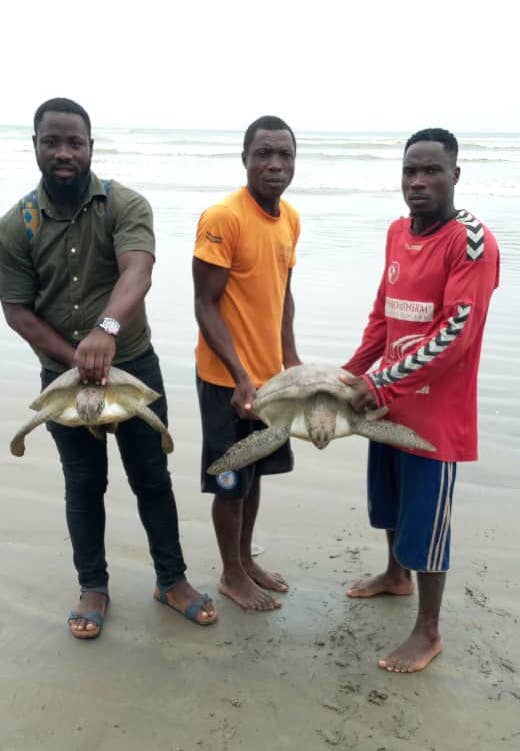
Wildseas
Wildseas was founded in 2011 by MCAF Fellow John Flynn, along with his conservation colleague and friend Neil Davis. The founding of Wildseas came about in order to address the threats to both nesting sea turtles and turtles forraging in, or migrating through, Ghanaian waters. They understand the need to involve local coastal communities, beach seine fishermen, and the artisanal canoe fishermen that could conduct the conservation work in the absence of Flynn or Davis personally in Ghana. As a nation where the coastal communities are heavily dependent upon the ocean for both their livelihood and as an essential food source, education in resource usage, sustainability and ocean ecology formed a considerable part of building the foundations of Wildseas conservation efforts in the Western Region of the country. People needed not only to understand that the ocean needs protection, but more importantly why it needs our collective protection. Whether it is stopping poaching of nesting turtles on beaches, promoting the conservation message through radio and TV messages, involving national authorities or ensuring the release of by-catch turtles by fishermen, Wildseas helps show that everyone in the broader community has a role to play. Wildseas has also appointed a local man from a fishing community, Eric Quayson, as Country Head to work with both fisherman and local authorities.
John Flynn says, “Many well-intentioned individuals and groups have come and gone in Ghana—parachute conservation if you will. And it doesn’t work. Our work is undertaken with a view to the future, not a year from now but how things will look and the effect of our work three, four, or five generations from today. Currently we have stakeholders, but the generations still to come are the futureholders. Their fate and the world they will inhabit will be directly affected by our efforts today and tomorrow. We like to think our work will prove to be of intergenerational significance, for the turtles, the ocean, and of course our own species.”

